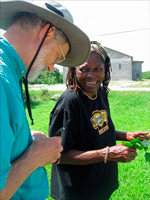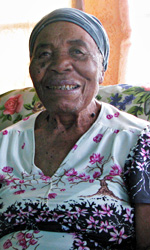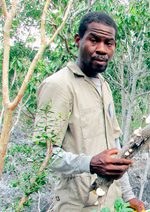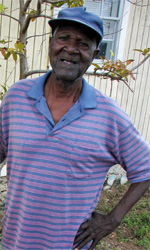_150w201h[72dpi].jpg)
|
_150w344h[72dpi].jpg)
|
_150w213h[72dpi].jpg)
|

|
_150w251h[72dpi].jpg)
|

|

|
_150w217h[72dpi].jpg)
|

|

|
DonatePlease support traditional plant medicine research
|
|
Our research is funded partly through the sale of our book, Bush Medicine of the Bahamas. That partly covers the cost of supplies, travel, and lodging when at our current research site on South Andros. The remainder of expenses are out-of-pocket expenses. For this reason, we are inviting tax-deductible donations for support of on-going research and the publication of a second book on Bahamian bush medicine. Tax-deductible donations can be made to the "Bahamian Bush Medicine Project" at the Open Hands 501(c)(3) website. Click on image below to go to the Open Hands website: By writing a check to Open Hands, 100% of your donation will be utilized. This avoids a 3% PayPal processing fee. Mail your check to: President, Open Hands, 523 Lexington Avenue, Charlottesville, VA 22902. In the memo section of the check write "Bahamian Bush Medicine Project". Each individual who donates $250 or more is eligible to receive a complimentary copy of our book signed by all three authors, as well as a copy of the e-book. When you write a check please also notify the principal investigator by email at Jeff.McCormack@gmail.com. |
Brief history of first project on San Salvador IslandWhen we began on research on San Salvador Island in 2007 we interviewed the most knowledgeable people on the island, most of them elderly. Since then, half of them have died or lost memories of how they, or their relatives, used bush medicine. Our timing was fortunate because much their wisdom would have been lost to the ages. In 2011 we published our first book Bush Medicine of the Bahamas. Over the next couple years I produced and published 12 videos based on interviews with these elders. Bush Medicine of the Bahamas was honored by the Mary W. Klinger Book Award for outstanding book of the year, awarded by the Society for Economic Botany. There are three basic requirements for this award. The book must be: (1) innovative and set new boundaries within the field of study; (2), and/or creatively research or document the use of plants by taking an educational or synthetic approach by integrating different fields of study, especially botany and anthropology; (3), and/or make other outstanding contributions to the field of study. Second project: new research on other islands
|
.jpg)
(3)[72dpi].gif)